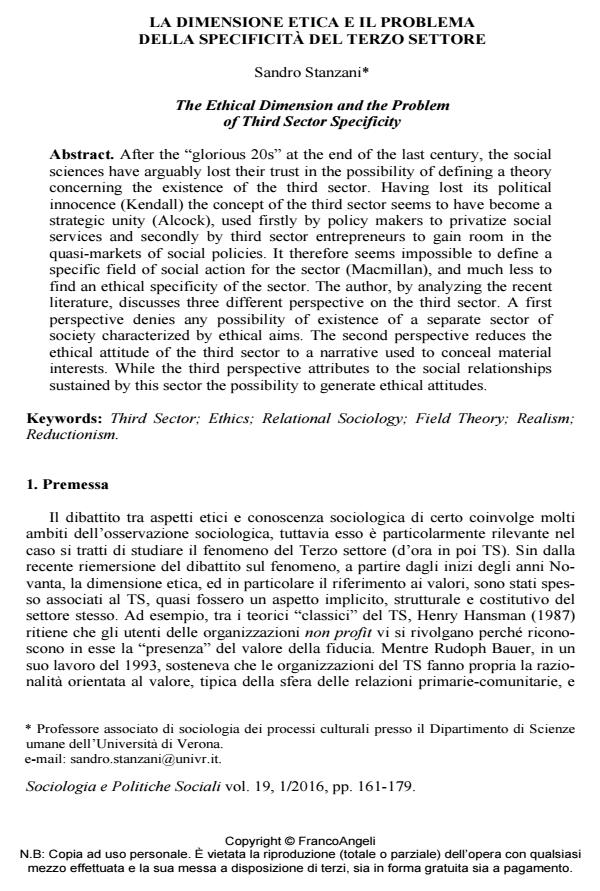La dimensione etica e il problema della specificità del terzo settore
Titolo Rivista SOCIOLOGIA E POLITICHE SOCIALI
Autori/Curatori Sandro Stanzani
Anno di pubblicazione 2016 Fascicolo 2016/1
Lingua Italiano Numero pagine 19 P. 161-179 Dimensione file 92 KB
DOI 10.3280/SP2016-001008
Il DOI è il codice a barre della proprietà intellettuale: per saperne di più
clicca qui
Qui sotto puoi vedere in anteprima la prima pagina di questo articolo.
Se questo articolo ti interessa, lo puoi acquistare (e scaricare in formato pdf) seguendo le facili indicazioni per acquistare il download credit. Acquista Download Credits per scaricare questo Articolo in formato PDF

FrancoAngeli è membro della Publishers International Linking Association, Inc (PILA), associazione indipendente e non profit per facilitare (attraverso i servizi tecnologici implementati da CrossRef.org) l’accesso degli studiosi ai contenuti digitali nelle pubblicazioni professionali e scientifiche.
After the "glorious 20s" at the end of the last century, the social sciences have arguably lost their trust in the possibility of defining a theory concerning the existence of the third sector. Having lost its political innocence (Kendall) the concept of the third sector seems to have become a strategic unity (Alcock), used firstly by policy makers to privatize social services and secondly by third sector entrepreneurs to gain room in the quasi-markets of social policies. It therefore seems impossible to define a specific field of social action for the sector (Macmillan), and much less to find an ethical specificity of the sector. The author, by analyzing the recent literature, discusses three different perspective on the third sector. A first perspective denies any possibility of existence of a separate sector of society characterized by ethical aims. The second perspective reduces the ethical attitude of the third sector to a narrative used to conceal material interests. While the third perspective attributes to the social relationships sustained by this sector the possibility to generate ethical attitudes.
Parole chiave:Third Sector; Ethics; Relational Sociology; Field Theory; Realism; Reductionism
Sandro Stanzani, La dimensione etica e il problema della specificità del terzo settore in "SOCIOLOGIA E POLITICHE SOCIALI" 1/2016, pp 161-179, DOI: 10.3280/SP2016-001008